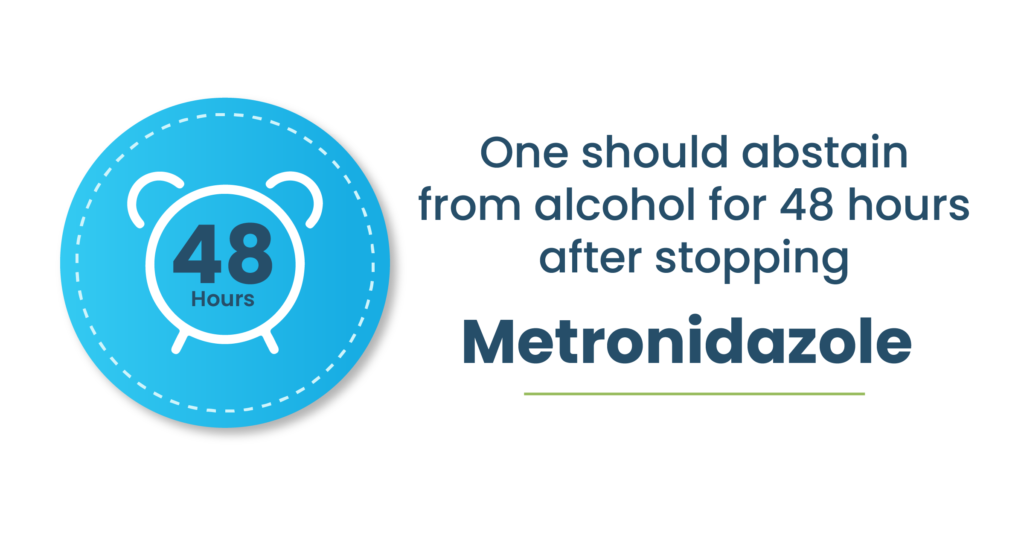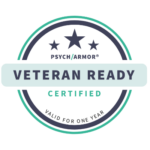
Due to the potentially dangerous interactions and unfavorable effects alcohol has on the immune system, avoid alcohol when taking antibiotics. Sometimes, antibiotics can interact with other drugs or substances.
Check out the patient information guide with your prescription before taking any antibiotics.
Alcohol
Avoid consuming alcohol if you’re taking medication or are feeling under the weather. Some antibiotics can cause unpleasant side effects like nausea or vertigo, which may worsen if you consume alcohol. However, drinking alcohol in moderation while using the most popular antibiotics is unlikely to result in issues.
Alcohol And Antibiotics Together
Even though most antibiotic packaging cautions against alcohol consumption, it’s a widespread misconception that drinking is often safe while taking these prescriptions. “Is it okay to drink on these?” is one of the most commonly asked questions our doctors receive regarding prescription antibiotics. The short answer is no; alcohol directly reduces antibiotic efficacy and can have various dangerous side effects.
Alcohol consumption while taking antibiotics can exacerbate nausea, a common side effect of antibiotics affecting the stomach or digestive system. Alcohol and antibiotics can impair cognitive function, focus, and coordination and cause gastrointestinal problems.
Another thing to think about with alcohol and antibiotics is that drinking disrupts vital bodily functions like sleep and hydration, which are needed to recover from a bacterial infection. These reasons make it recommended to abstain from alcohol when receiving antibiotic treatment.
How Do Antibiotics Work?
Antibacterial agents, usually referred to as antibiotics, are potent drugs that stop or reduce the growth of germs. Antibiotics combat bacterial diseases, not viral infections such as flu or the common cold.
Antibiotics function by either eradicating invasive germs or preventing the production of new antibodies. Antibiotics are occasionally necessary because the amount of foreign bacteria is too significant for the body’s white blood cells to effectively combat and eliminate the infection on their own.
There are numerous varieties of antibiotics on the market that cure a variety of ailments, including:
- Throat infection
- Pneumococcal pneumonia
- Infections of the urinary tract
- Sexually transmissible conditions
- Infected ears
- Dizziness
- Skin conditions like acne
- Sepsis
Most antibiotics are generally safe when used as prescribed, but many also risk unpleasant side effects such as nausea, diarrhea, and upset stomach. When used with alcohol, these symptoms can intensify and result in additional adverse effects such as nausea, vertigo, sleepiness, headaches, and even potentially fatal seizures.
Tinidazole and Metronidazole
It is preferable to avoid drinking entirely while taking tinidazole and metronidazole.
- Metronidazole is an antibiotic for skin infections, leg ulcers, pressure sores, and vaginal or oral infections.
- Tinidazole is an antibiotic occasionally used to treat many of the same infections as metronidazole. It also aids in the elimination of the gut bacteria Helicobacter pylori (H. pylori).
Please abstain from alcohol for 48 hours after stopping metronidazole.
The following extremely severe side effects can occur while using alcohol and metronidazole or tinidazole:
- Abdominal pain
- A hot flush
- A rapid or erratic heart rate
- Headaches
- Feeling unsteady
- Feeling sleepy
- Blood pressure changes
List of Other Common Antibiotics
One of the most essential and frequently prescribed drug classes in medicine is antibiotics. When you have an infection, rest, hydrate well (avoid alcohol), and take all your medication. Although not all specific antibiotics interact negatively with alcohol, it is typically a good idea to abstain from alcohol on days you are sick.
Other additional typical types of antibiotics routinely used to treat infections include:
- Clavulanic acid with amoxicillin (Augmentin)
- Amoxicillin (Amoxil) (Amoxil)
- Ciprofloxacin (Cipro) (Cipro)
- Cephalexin (Keflex) (Keflex)
- Levofloxacin (Levaquin) (Levaquin)
- Azithromycin (Zithromax) (Zithromax)
- Moxifloxacin (Avelox) (Avelox)
- Clindamycin (Cleocin) (Cleocin)
If you’re unsure if you can drink alcohol while taking antibiotics, immediately consult our professional healthcare professionals, doctor, and pharmacists.
The Pill For Birth Control
Rifampicin and rifabutin are two antibiotics that can lessen the birth control pill’s effectiveness.
You may use additional contraception, such as condoms, while taking antibiotics. Ask your doctor, nurse, or pharmacist for guidance.
Medicines Mixing
While using an antibiotic, you may need to steer clear of or get advice on certain medications, such as:
Penicillins
Doctors typically advise against mixing penicillin with methotrexate, an antibiotic prescribed to treat psoriasis, rheumatoid arthritis, and some types of cancer. This is because of the possibility of a variety of unpleasant and occasionally severe side effects when the two drugs are combined.
However, some penicillin variants, including amoxicillin, can be used with methotrexate.
You can get a skin rash if you take penicillin with allopurinol, a medication used to treat gout.
Cephalosporins
Cephalosporins increase your risk of bleeding if you are on blood-thinning drugs (anticoagulants), such as heparin and warfarin.
You might need to adjust the dosage of your anticoagulant medication or undergo further high blood pressure testing if you need to use cephalosporins for therapy.
Aminoglycosides
Aminoglycosides treat life-threatening illnesses like septicemia. If appropriately used, aminoglycoside creams and eardrops do not cause these severe side effects. Your doctor will monitor your blood levels to ensure a safe level of the antibiotic present.
Tetracyclines
Before taking tetracycline, see your doctor or pharmacist if you are currently taking:
- Supplements with vitamin A
- Retinoids for severe acne, including acitretin, isotretinoin, and tretinoin
- Blood-thinning agents
- Diuretics
- Kaolin-pectin and bismuth used to treat diarrhea
- Diabetic medications, such as insulin
- Atovaquone for pnumonia
- Antacids commonly used to treat heartburn and indigestion
- Sucralfate to treat ulcers
- Lithium
- Digoxin
- Methotrexate
- Strontium ranelate
- Colestipol or Colestyramine
- Migraine medications such as methysergide with ergotamine
Macrolides
Avoid taking a macrolide antibiotic along with any of the following drugs unless told to by your doctor because the combination may cause heart issues:
- Antihistamines, including terfenadine, astemizole, and mizolastine
- Amisulpride
- Tolterodine
- Statins or medications that lower cholesterol
- Rivaroxaban
Fluoroquinolones
Before using a fluoroquinolone, consult with your doctor or pharmacist if you are presently taking:
- Asthma medication, theophylline, which may be present in cough and cold medications
- Medicines that contain non-steroidal anti-inflammatory drugs (NSAIDs), such as ibuprofen
- Ciclosporin
- Probenecid anti-gout medication
- Clozapine
- Ropinirole
- Tizanidine
- Glibenclamide to treat diabetes
- Cisapride
- Tricyclic medications for depression, such as amitriptyline
- Steroids such as corticosteroids and prednisolone
- Medications for heart valve issues, such as beta-blockers or diuretics
People at risk for heart valve issues should avoid fluoroquinolone antibiotics since they can significantly increase the risk of side effects.
Caffeine, a stimulant in coffee, tea, and soda, can make you irritated, restless, and have trouble falling asleep. Some fluoroquinolones can amplify these symptoms (insomnia).
Avoid medications with high quantities of minerals or iron when taking fluoroquinolones since these can interfere with positive effects. Avoid medicines such as:
- Antacids
- Supplemental zinc
- Certain multivitamin dietary supplements
The Risks of Consuming Alcohol While Taking Antibiotics
Both alcohol and antibiotics have unique side effects that affect a person’s behavior and state of mind. Because of this, you should never combine alcohol and antibiotics.
When mixed with alcohol, several antibiotics could cause extreme physical reactions. These include the sulfonamide drugs Sulfamethoxazole and Trimethoprim, used to treat anything from urinary tract infections to pneumonia to ear infections, and Metronidazole and Linezolid, which are used to treat intestinal tract and skin infections.
Alcohol consumption while using these medications can cause extreme exhaustion, a splitting headache, vertigo, anxiety, chest pain, and heart palpitations. Alcohol might exacerbate digestive side effects such as severe diarrhea, debilitating stomach cramps, pain, fever, and uncontrollable vomiting.
Certain antibiotics combined with alcohol can harm essential organs, including the liver and kidney. Because toxins, including pharmaceuticals, are removed from the blood and body by the kidneys through urine, alcohol abuse worsens kidney damage and the functionality of antibiotics.
Alcohol can harm the immune system functions and the body’s capacity to recover from infections, in addition to the crippling serious side effects mentioned above. The body’s ability to heal and recuperate is slowed by alcohol, which also increases the likelihood that they may get sick again.
When Taking Antibiotics, Stay Away From Alcohol
Alcohol use disorder while taking different antibiotics carries some danger. Alcohol might potentially interfere with the body’s natural healing process, negatively interacting with some drugs and having significant side effects. Alcohol should be avoided until your antibiotic treatment is finished and your body has had enough rest and nutrients.
However, this may be more difficult to perform if you have an alcohol problem. If you suspect you may have an alcohol addiction, begin your journey of discovery and get in touch with our treatment facility immediately.
Frequently Asked Questions (FAQs)
Which antibiotics should you not drink with alcohol?
Some antibiotics you should not combine with alcohol include sulfamethoxazole, trimethoprim (Bactrim), metronidazole (Flagyl), tinidazole (Tindamax), and metronidazole (Flagyl).
How long should I wait to drink alcohol after taking antibiotics?
Before consuming alcohol, you might need to wait for at least 72 hours after finishing the course of antibiotics. You can prevent the adverse effects of an alcohol-drug combination by paying attention to your doctor’s or pharmacist’s recommendations.
Why shouldn’t I drink alcohol while I’m on antibiotics?
Similar negative symptoms, such as nausea, vertigo, and sleepiness, can be brought on by both alcohol and antibiotics. These adverse effects can be exacerbated by mixing antibiotics and alcohol because it has a negative impact. Due to this, you should abstain from drinking when taking antibiotics.
Can I drink beer on antibiotics?
Even though moderate alcohol use doesn’t affect most antibiotics’ effectiveness in some cases, it can lower your energy and slow your recovery time from illness. Therefore, you should abstain from alcohol until you have finished your antibiotics and feel better.
Need Support? The Haven Can Help
To get you ready for an entire recovery life, The Haven Detox-South Florida’s premier drug and alcohol treatment center uses research-based addiction therapy, individualized treatment plans, and aftercare planning.
Prioritize your future and get in touch with our discreet counselors and medical professionals to learn more about the finest recovery facility and program for you.
Give us a call to begin your drug and alcohol rehab treatment program if you or a young adult you know has a drug or alcohol addiction. Our admissions department can address any questions regarding our facility or various treatment options, and 24-hour medical assistance (medical advice) is accessible. Contact us at (561) 328-8627.






